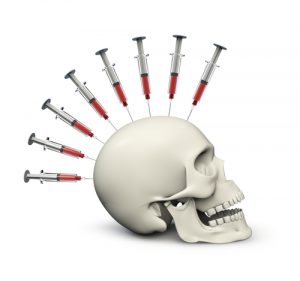Smoking is one of the most common addictions and bad habits people face. It is extremely unhealthy yet many turn to it to calm nerves and anxiety. This dependency makes smoking and its ingredients extremely addictive and dangerous. So many try to break the unhealthy habit but are unable to due to tobacco and nicotine within the cigarette. Learning to cope with the addiction and cravings take time. Some individuals require substance abuse counseling while others go to support groups. Others look to patches and other approaches to curb the physical and mental desire. Trying to break the cycle of addiction can be difficult but with proper coping and counseling, one can finally become free of smoking.

The article, “Why is tobacco so addictive?” by Joe Phealon looks closer at the addictive nature of tobacco and smoking. He states,
“Nicotine is especially addictive when smoked or otherwise taken into the lungs because “the onset of the stimulant-like effects occurs very rapidly through this route of administration,” David Ledgerwood, a clinical psychologist in the Substance Abuse Research Division at Wayne State University in Detroit, Michigan, told Live Science in an email.”
The article continues, “If someone smokes regularly for months and years, their brain will become used to having nicotine to the point where, eventually, “they need nicotine to function well,” Ledgerwood said. During periods when the addicted individual does not smoke, they may experience physical withdrawal symptoms until their brain can adjust to the nicotine’s absence.”
“Why is tobacco so addictive?”. Joe Phealon. Live Science. July 17th, 2022
To read the entire article, please click here
Commentary
Smoking tobacco is a common practice throughout the world and has been for centuries. While the specific reasons for why people smoke vary from person to person, there are some general reasons that are often cited. These include wanting to relax, wanting to feel more alert, and wanting to socialize with others. There are a number of negative health effects associated with smoking, including an increased risk of developing cancer, lung disease, and other respiratory problems.
Smoking is addictive because it contains nicotine, which is a highly addictive substance. When people smoke, the nicotine enters their bloodstream and goes to their brain, where it binds to receptors and causes a feeling of pleasure. Over time, people who smoke cigarettes develop a tolerance to nicotine and need to smoke more and more cigarettes to get the same feeling of pleasure. Nicotine is an organic compound that is found in tobacco leaves. It is also the main psychoactive ingredient in cigarettes. Nicotine acts as a stimulant, and it increases alertness and reduces anxiety. It also has a calming effect on the body, and it can help to relieve stress. This can lead to addiction.
Health Risks of Smoking
Smoking cigarettes is linked to an increased risk of developing a number of serious health conditions, including heart disease, stroke, and cancer. Smoking is also a major contributor to respiratory problems, such as chronic obstructive pulmonary disease (COPD). In addition to the health risks posed by smoking, there are also economic consequences. Cigarette smoking is estimated to cost the US economy billions of dollars each year in healthcare costs and lost productivity.
Smoking cigarettes introduces harmful chemicals into the lungs, which can damage the delicate tissue and lead to a number of serious health problems. The chemicals in tobacco smoke cause inflammation and irritation, and over time can damage the airways and lungs. This can lead to conditions such as bronchitis, emphysema, and lung cancer.
Quit Smoking
There are many ways to stop smoking, but not all of them are effective for everyone. Some people find that cold turkey is the best method, while others find that gradual reduction works best for them. Some people use nicotine replacement therapy, which can help to ease withdrawal symptoms and make quitting less difficult. There are also many prescription medications that can help with quitting smoking, and it is always best to talk to a doctor before starting any new medication.
Addiction counselors, peers, friends and support groups can also play large roles in encouragement. It is also important to avoid places where one might find smoking. The addictive nature is complex because it is both physical and also mental. Good support is key in breaking the bad habit.
Conclusion
In conclusion, smoking is a highly addictive behavior that is detrimental to one’s health. Quitting smoking is very difficult, but it is possible with the right resources and support. If you or someone you know is struggling with addiction, there are many organizations that can help, such as the National Institute on Drug Abuse or the American Lung Association.
Smoking is a difficult but rewarding process. It takes time, patience, and perseverance to break the habit. However, the benefits of quitting smoking are numerous. Quitting smoking reduces your risk of developing cancer, heart disease, and other smoking-related illnesses. It also improves your overall health, including your respiratory and cardiovascular health. Additionally, quitting smoking can save you a significant amount of money over time.
Please also review AIHCP’s Substance Abuse Counseling Training and see if it matches your academic and professional goals. The program is online and independent study and open to qualified professionals seeking a four year certification in Substance Abuse Counseling. After completing the courses, one can then apply for certification and help utilize their talents in aiding others overcome addiction to smoking.
Additional Resources
“Nicotine control: E-cigarettes, smoking and addiction”. KirstenBell and HelenKeane. International Journal of Drug Policy Volume 23, Issue 3, May 2012, Pages 242-247. Access here
“What Happens to Your Body When You Quit Smoking?”. WebMed Editorial Contributors. WEBMED. August 3rd 2022. Access here
“Health Effects of Cigarette Smoking”. CDC. Access here
“How to Quit Smoking. The American Lung Association. Access here
“Harms of Cigarette Smoking and Health Benefits of Quitting”. National Cancer Institute. Dec 19th, 2017. Access here









